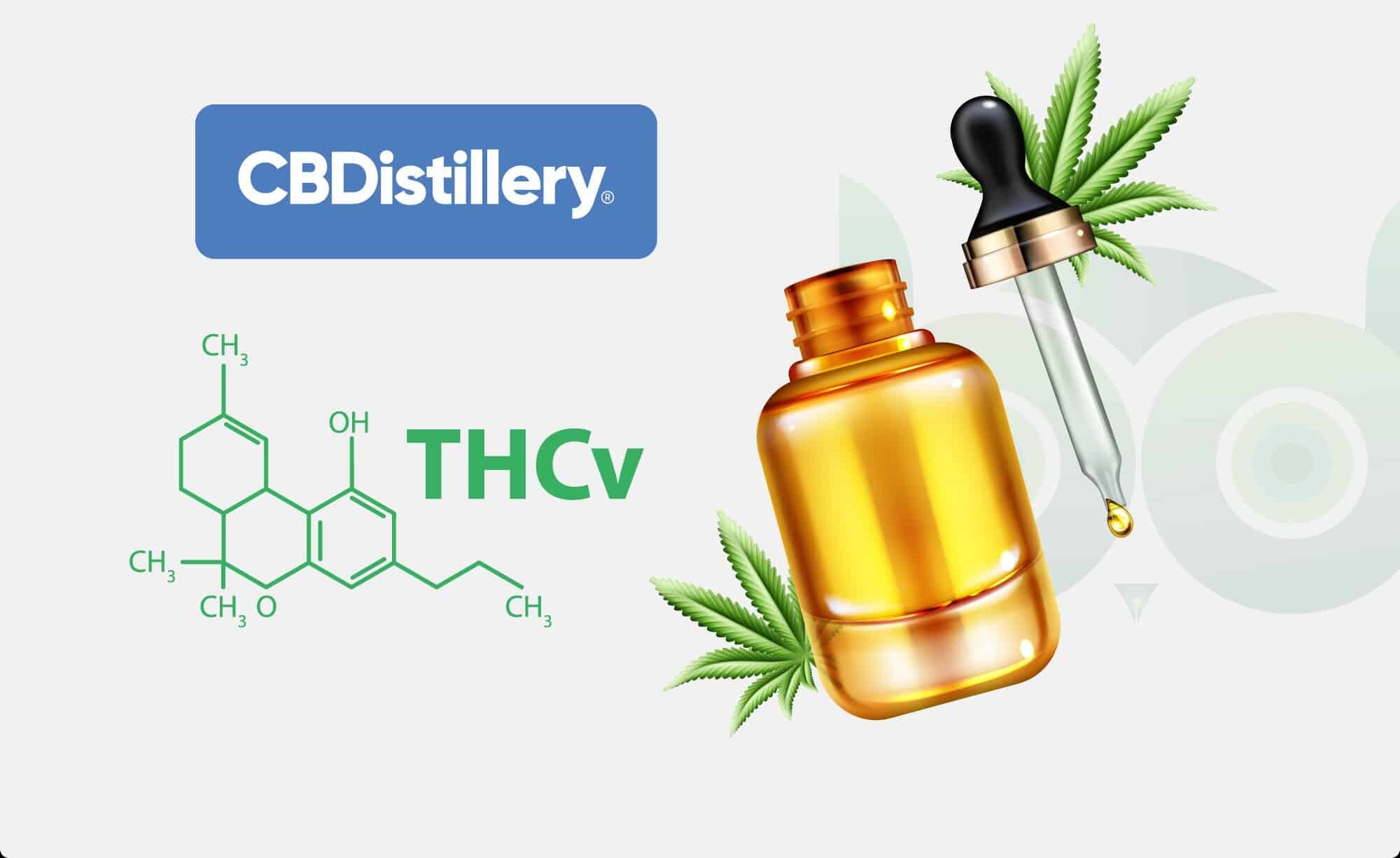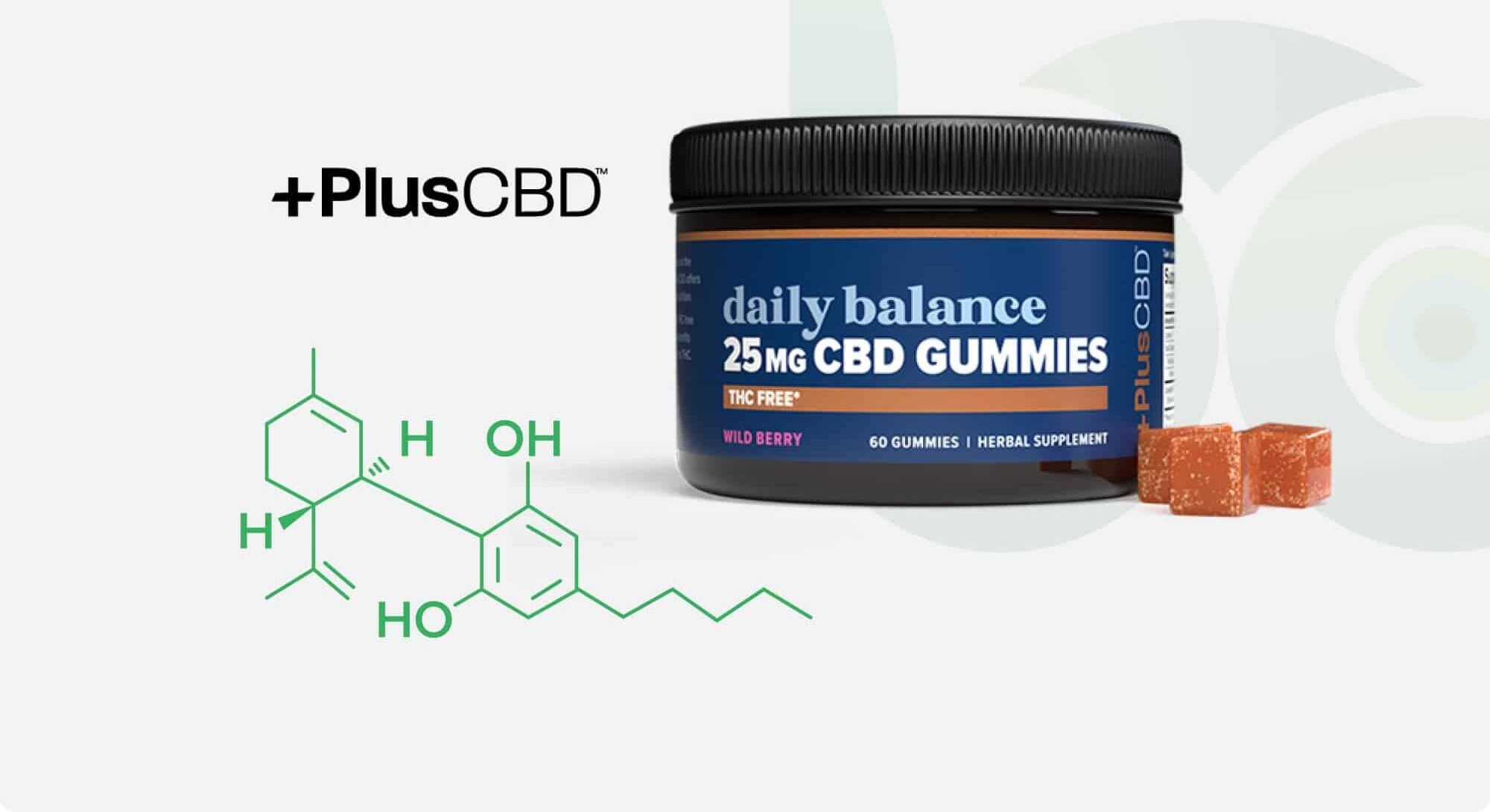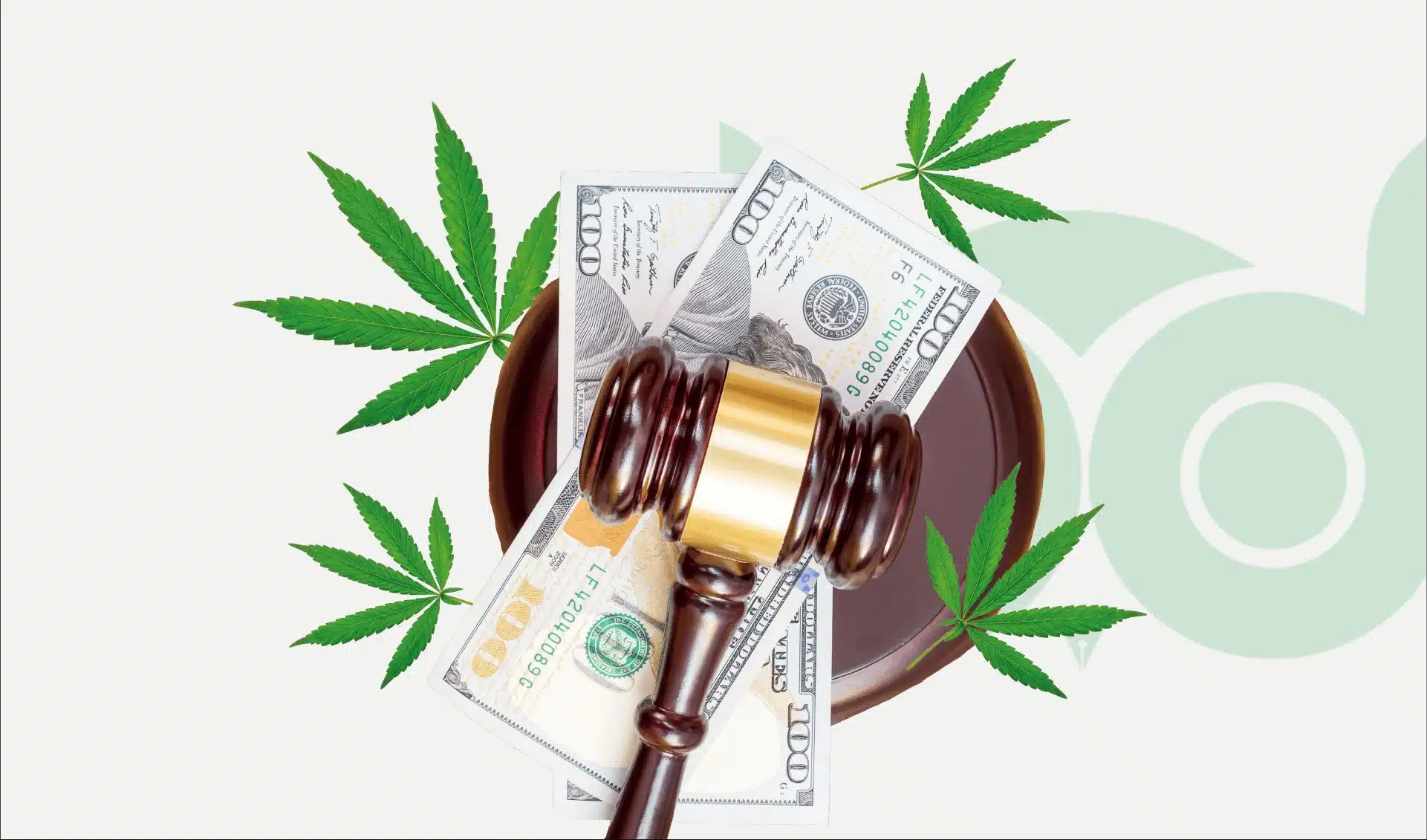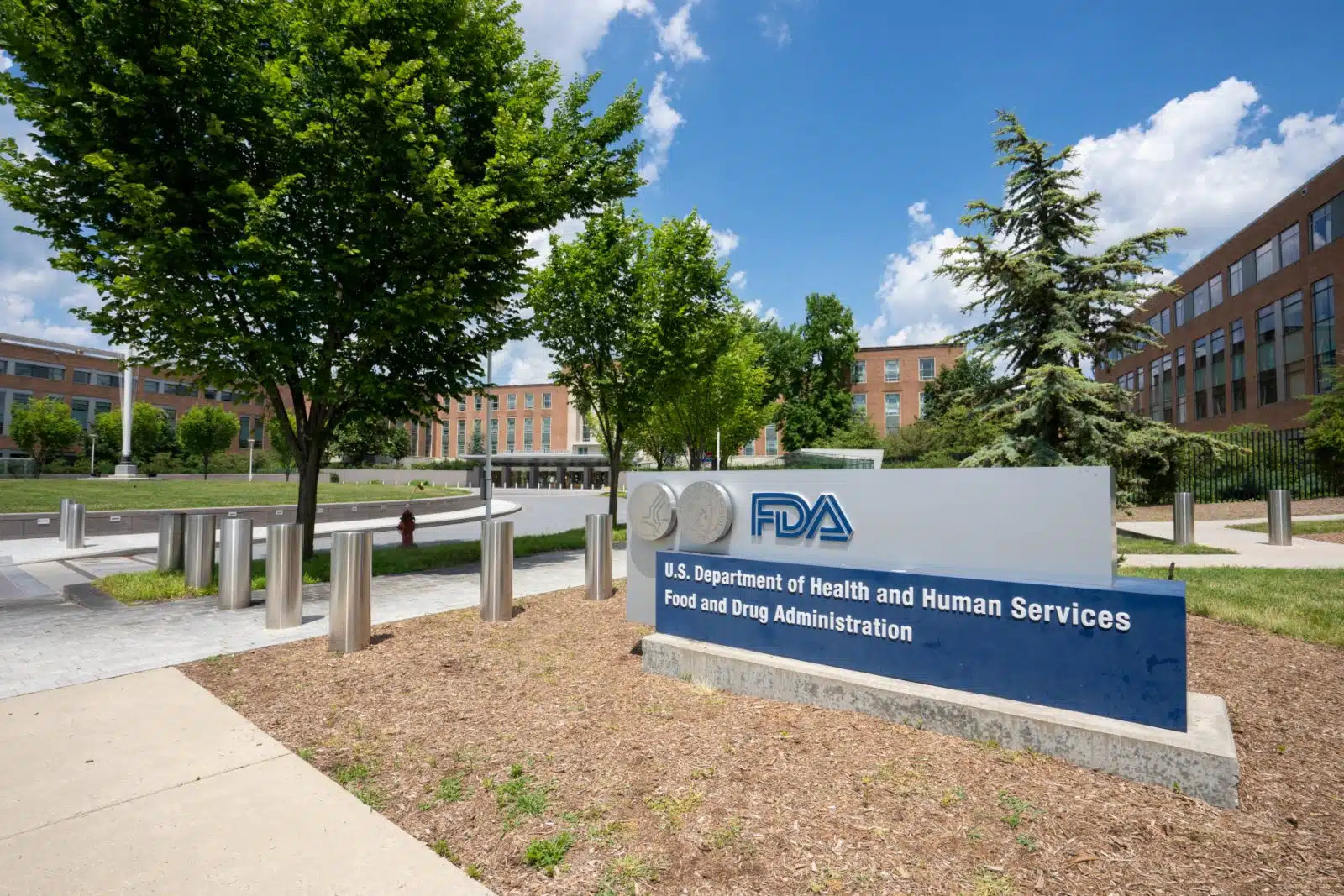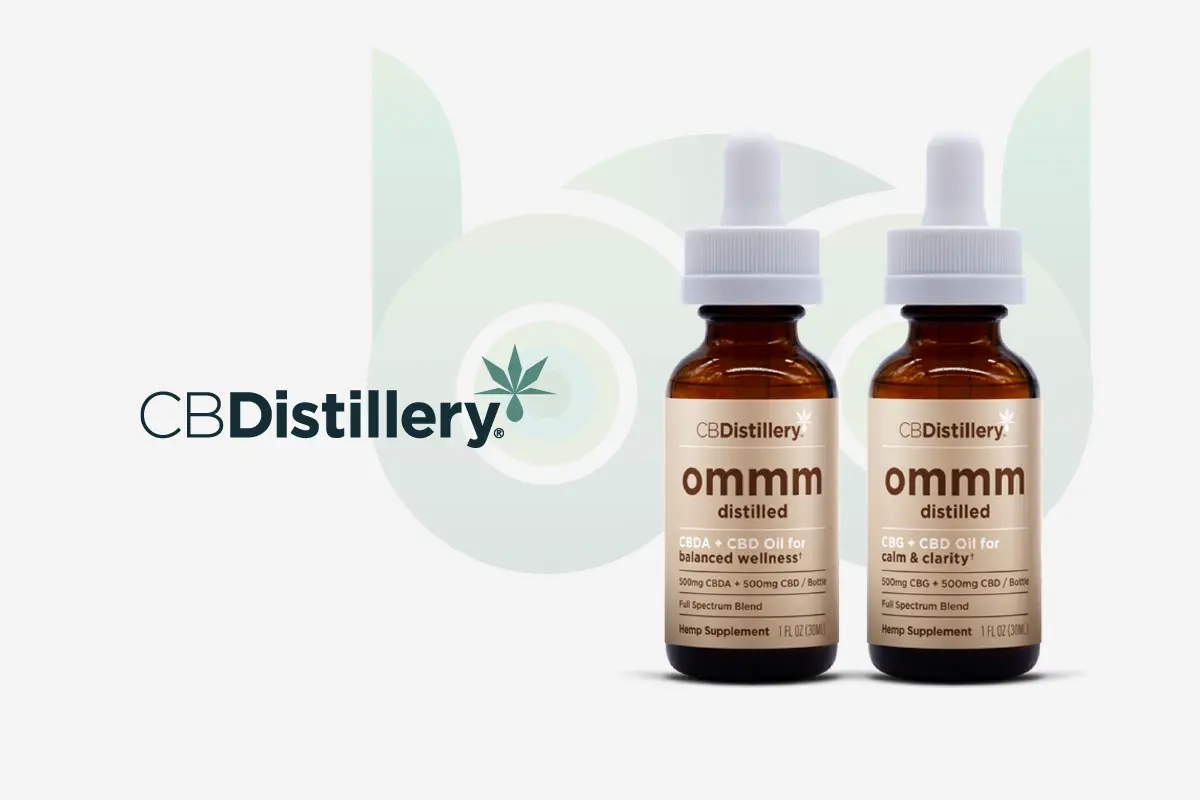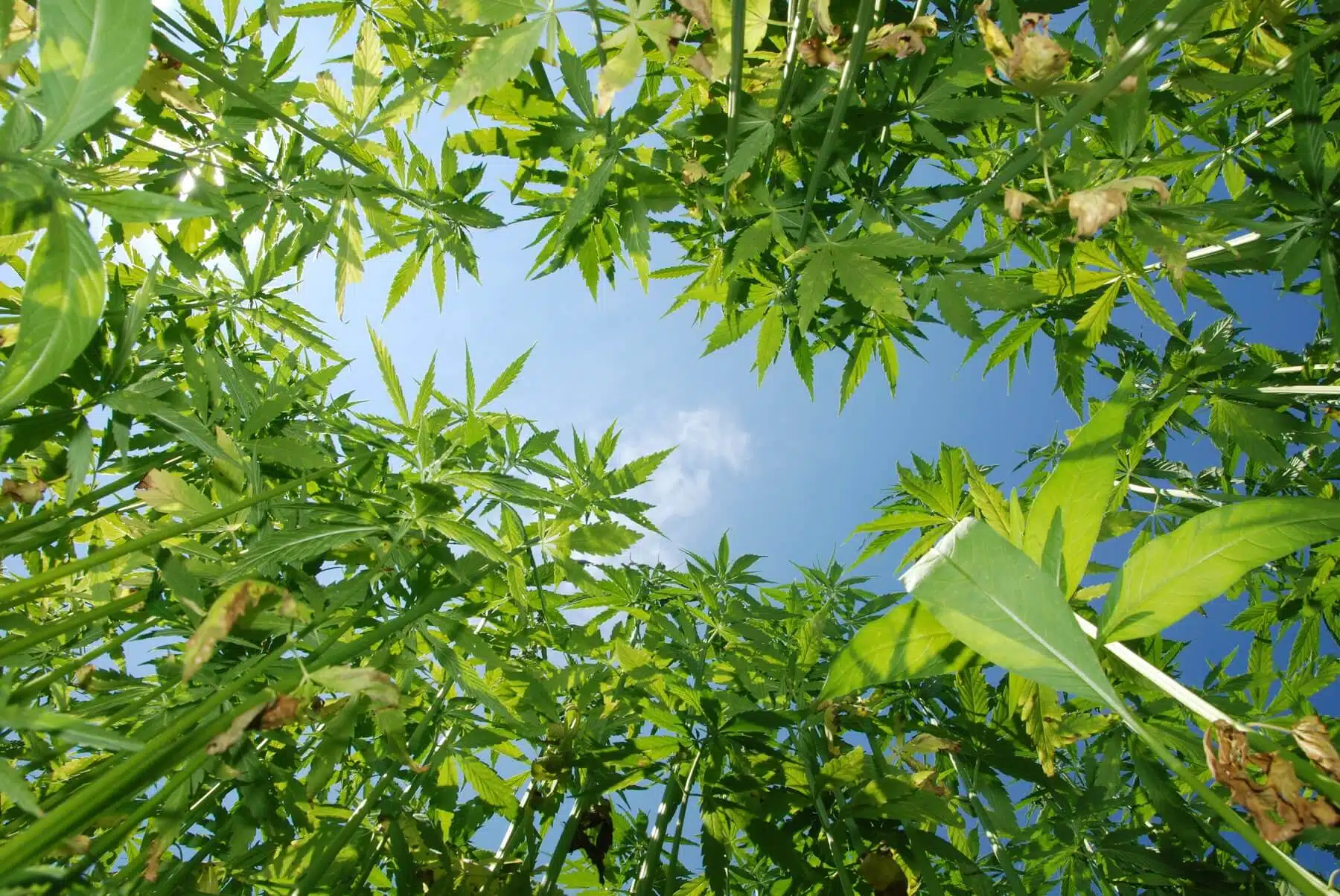-
- Market Research
- |
- CBD Near Me
- |
- Giveaways
- |
- Newsletter
- |
- Contact
- |
- Advertise
- |

Ah yes, the appetite question—yet another casualty of treating every non-THC cannabinoid like, well, THC.
While cannabidiol (CBD) is certainly similar to delta-9 THC in a number of ways, the short answer to the question “Does CBD make you hungry?” is that it has been shown to decrease appetite more often than it increases it—but both (or neither) can happen depending on the circumstances.
In this guide to all things CBD and appetite, we’ll give you a crash course on CBD itself, then carefully outline what the clinical research says about CBD’s somewhat nuanced relationship with appetite.
Enough with the acronyms? Let’s take a closer look at CBD.
What is CBD?
As we describe in more depth in our comprehensive guide to CBD, cannabidiol is a compound occurring naturally in cannabis plants.
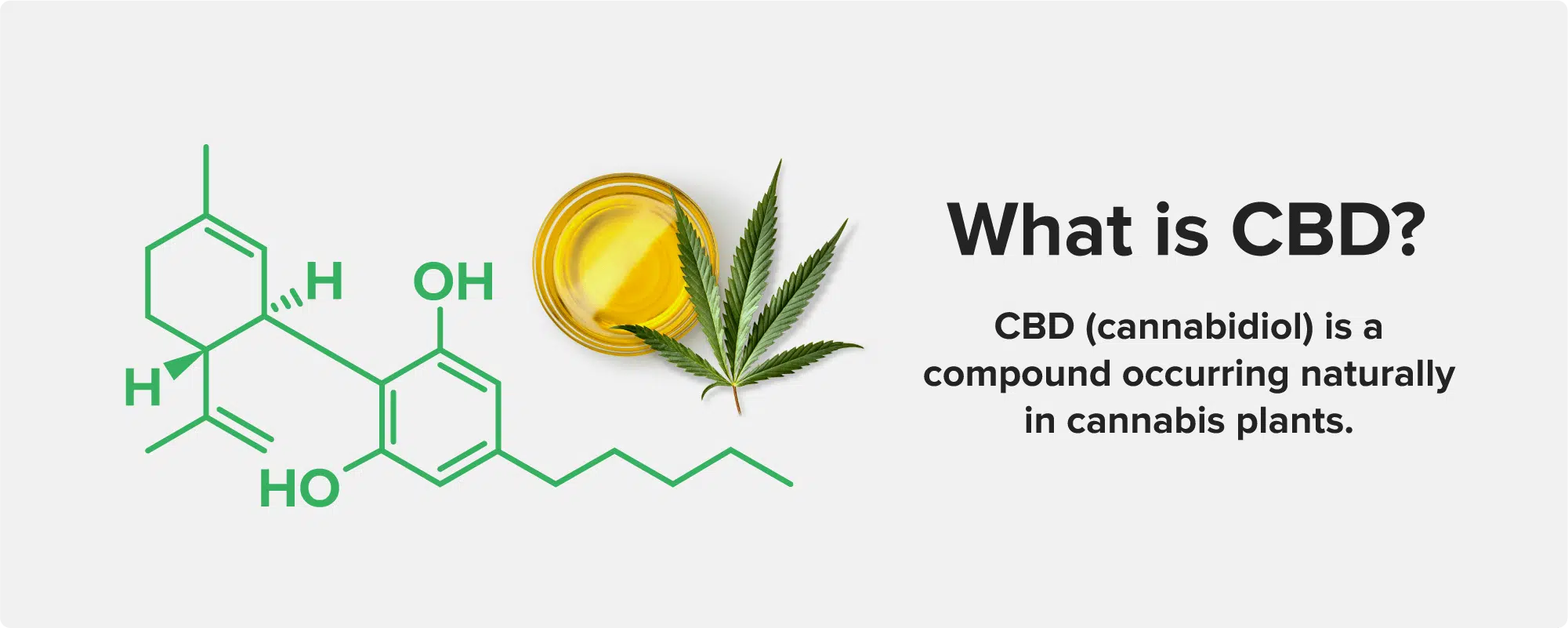
CBD and other molecularly similar compounds from cannabis plants are referred to as cannabinoids—similar to antioxidants, proteins, or other umbrella terms that describe many different compounds.
While there are well over a hundred cannabinoids that have been discovered to date, CBD and delta-9 THC are by far the most researched because of their natural abundance and powerful therapeutic properties.
CBD products that contain multiple cannabinoids and THC are referred to as full-spectrum CBD.
CBD is considered non-intoxicating; it won’t elicit a “high” like delta-9 THC will. However, it can still subtly affect mood and alertness, often promoting a sense of calm.
Finally, CBD works with cell receptors in the body (the endocannabinoid system) to stimulate several processes that regulate pain, inflammation, anxiety, sleep, skin health, and more. But does CBD oil make you hungry? The consensus is still a bit thin, but most experts would say probably not. And again, it varies by situation.
Does CBD Make You Hungry?
Researchers testing the effects of CBD on appetite (and other variables) have explored several different scenarios, differing in the age range and medical status of study participants, the dose of CBD and frequency of use, introducing other compounds at the same time, and more.
Like we mentioned, CBD by itself usually acts as an appetite suppressant, but there have been cases (single, high-dose CBD especially) where it stimulated appetite, and plenty of cases where there wasn’t much of an effect.
In other words, the effect of CBD on appetite stimulation does seem to be largely dependent on various situational factors, with the overall trend showing appetite-suppressing effects. A closer look at the research is needed to identify when and how CBD will have these effects.
The following scenarios represent some of the most frequently studied uses of CBD.
CBD and Delta-9 THC: Does Full-Spectrum CBD Make You Hungry?
A study from University College in London found that CBD, which is largely agreed upon to have antagonistic effects to delta-9 THC, can decrease the “attentional bias to drug and food stimuli” associated with THC.
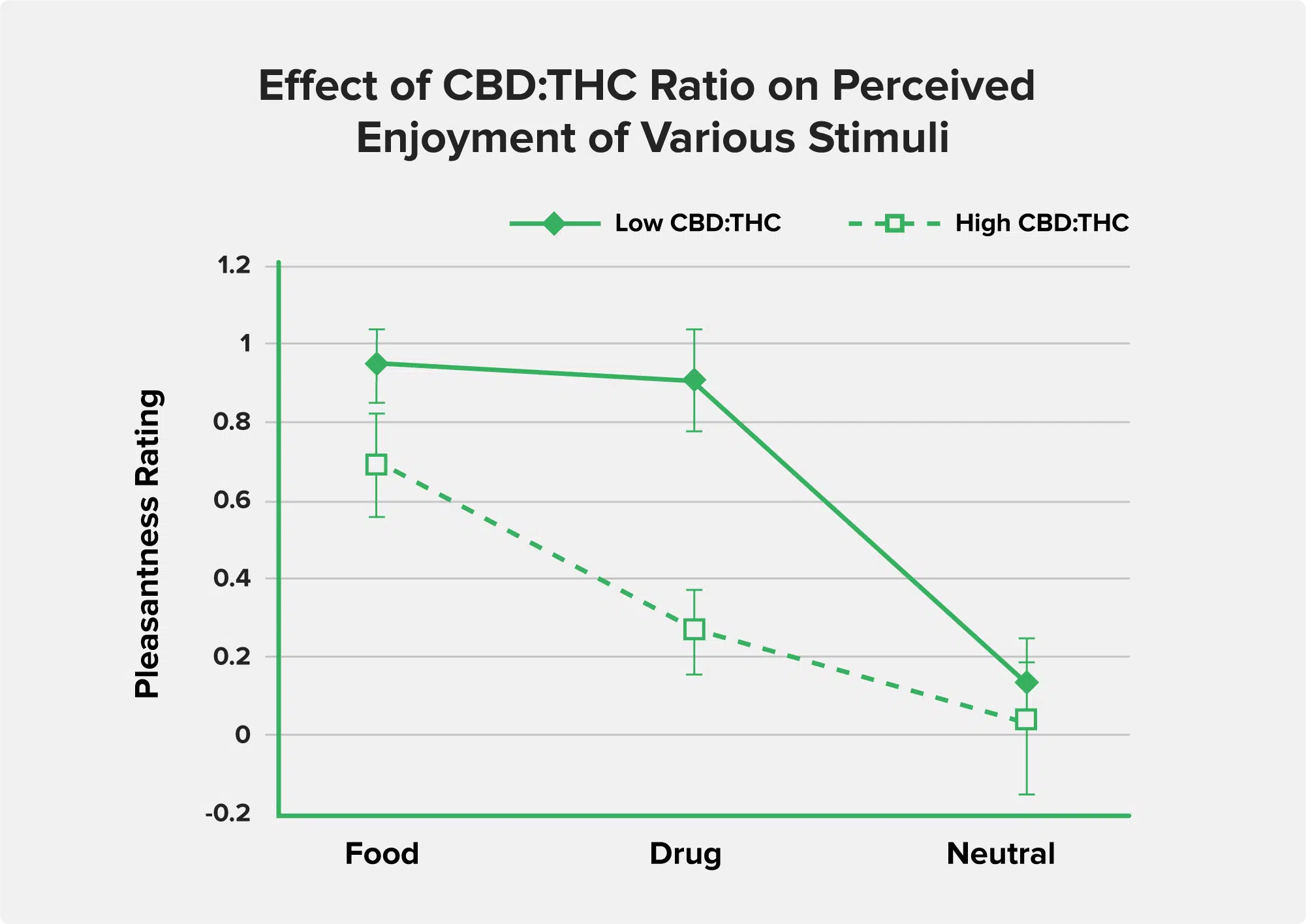
In the study of 94 cannabis users, those administered a high CBD-to-THC form of cannabis showed not only a relative decrease in their appetite, but also a decreased bias to “drug stimuli” and lower self-rated liking of their using experience.
To put it in more familiar terms for those of us who drink alcohol, CBD is almost like a “chaser” that can flatten out several of the effects of higher amounts of delta-9 THC, and appetite appears to be included.
Because of this push-and-pull relationship between the two cannabinoids, the authors of this study and many concurring clinicians argue that CBD can be useful in resolving cannabis dependence.
It’s particularly useful for people who take full-spectrum hemp products (CBD, THC, and other cannabinoids) who want an answer to the question, does full-spectrum CBD make you hungry?
CBD versus Placebo In Healthy Adults
Expanding a bit on the results from the previous study, this finding from Wageningen University in The Netherlands showed that high CBD-to-THC cannabis not only decreased desire to eat in participants compared to high THC-to-CBD cannabis users, but compared to the placebo group as well.
This conclusion suggests that CBD can have appetite-suppressing effects even if you aren’t a delta-9 THC user.
That said, the application of CBD for appetite would have more clearly revealed the CBD’s benefits if the CBD group consumed an isolate (no THC), but the results are still suggestive of an appetite-suppressing effect.
A final note on the effect itself is that it wasn’t a lower reported fullness level that the CBD group reported, but a lower desire to eat.
CBD and Medical Conditions
This systematic review from the University of Porto in Portugal identified several clinical trials in which CBD was tested on participants with diabetes and serious epileptic conditions like Dravet syndrome or Lennox-Gastaut syndrome.
To date, the only FDA-approved CBD drug product, Epidiolex, is used for Dravet and Lennox-Gastaut syndromes, which is one reason why researchers often hone in on CBD’s tolerability and effects among young patients with these conditions.
The study involving 62 participants with non-insulin-treated type 2 diabetes found that CBD use (100mg, twice a day for 13 weeks) had no effect on appetite, and did not affect BMI, waist circumference, or any other size/weight markers measured by the researchers.
This clinical trial involving 120 children with Dravet syndrome (who had drug-resistant seizures) used CBD as an adjunct therapy to antiepileptic drugs in hopes of reducing seizure frequency. The researchers noted that 28% of the children with Dravet syndrome who received CBD noted decreased appetite, compared to 5% in the placebo group.
Finally, similar results in a trial of 225 patients Lennox-Gastaut syndrome participants revealed an important element: dose-dependent intensity of appetite-suppressing effects. Participants who received the higher of two doses (20 mg/kg versus 10 mg/kg) of an oral CBD solution reported decreased appetite more commonly (26%) than those who took the lower dose (16%).
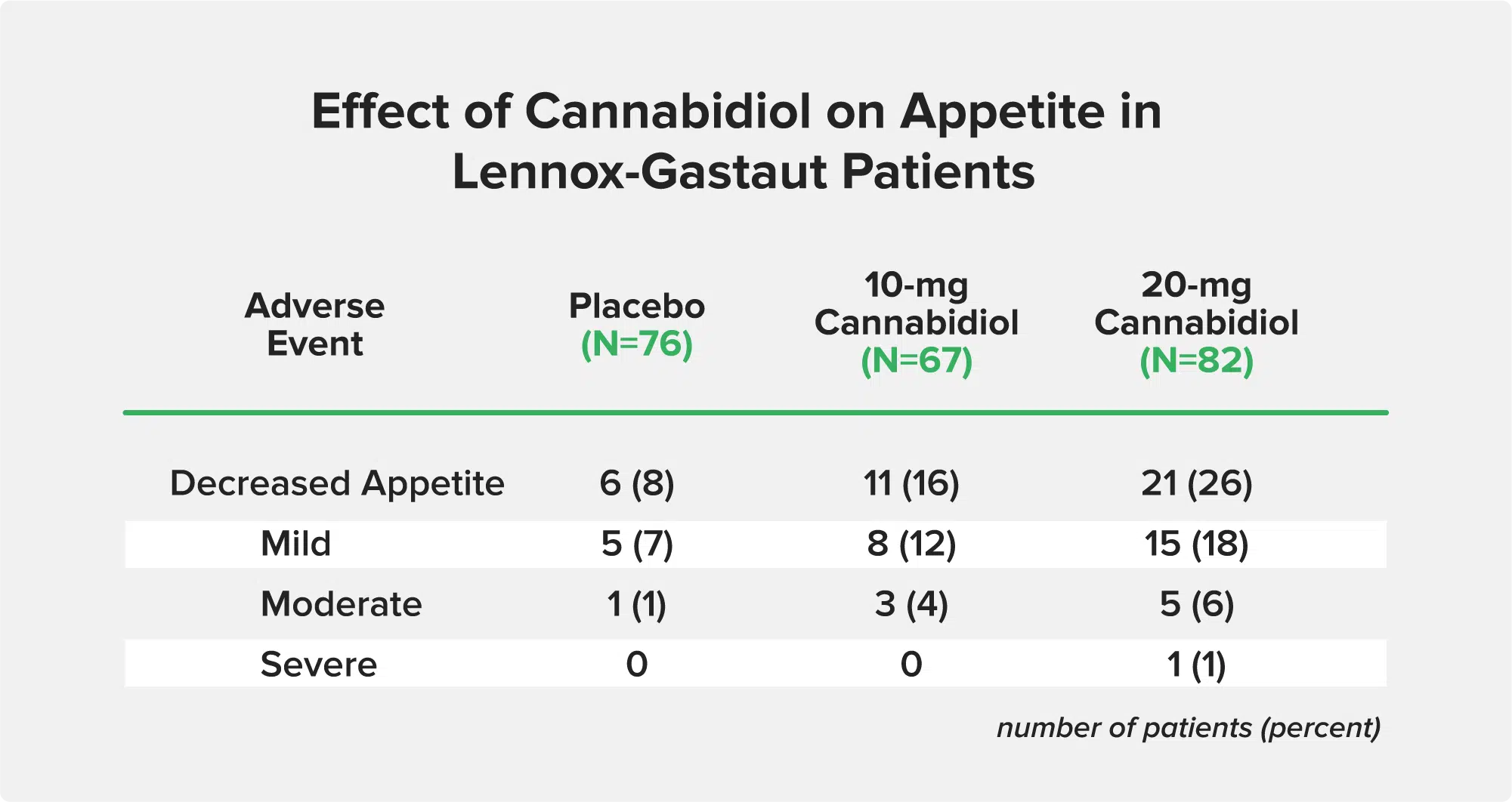
CBD and Appetite FAQ
Is CBD a good appetite suppressant?
While the potential ability of CBD to reduce appetite is still being explored, the current knowledge base points to appetite-suppressing effects in some cases. Dosage, frequency of use, medical history and other characteristics of the user, and other circumstances may affect whether CBD has this effect on appetite, if any. Many people stand by CBD as a way to lose weight via appetite control.
Will CBD encourage weight gain (or at least hunger) if it’s consumed in a single high dose? That may be more likely, but we still want to wait on more research to make that association. Does CBD increase appetite otherwise? That’s more consistently confirmed to be a no.
What are the side effects of consuming CBD?
As we detail in this article, CBD is well tolerated by most people (not just as a weight loss supplement), but can cause changes in appetite, diarrhea, drowsiness, dry mouth, lightheadedness, and low blood pressure. This isn’t an exhaustive list, but these are among the most frequently reported side effects.
Does CBD affect your metabolism?
The connections between CBD and metabolism are complex and still largely unexplored, but it’s likely that CBD (beneficially) impacts glucose and lipid metabolism. These effects are at least partially mediated through the endocannabinoid system, or the “CB1” and “CB2” cell receptors that CBD and other cannabinoids primarily interact with within our nervous systems.
This Frontiers in Endocrinology article goes into more detail about the fascinating connections between CBD and metabolism.
Does CBD cause bloating?
Yes and no. While CBD is not thought to directly cause bloating by virtue of any measurable chemical action in the body, people who react adversely to CBD for whatever reason may experience digestive issues, including bloating.


